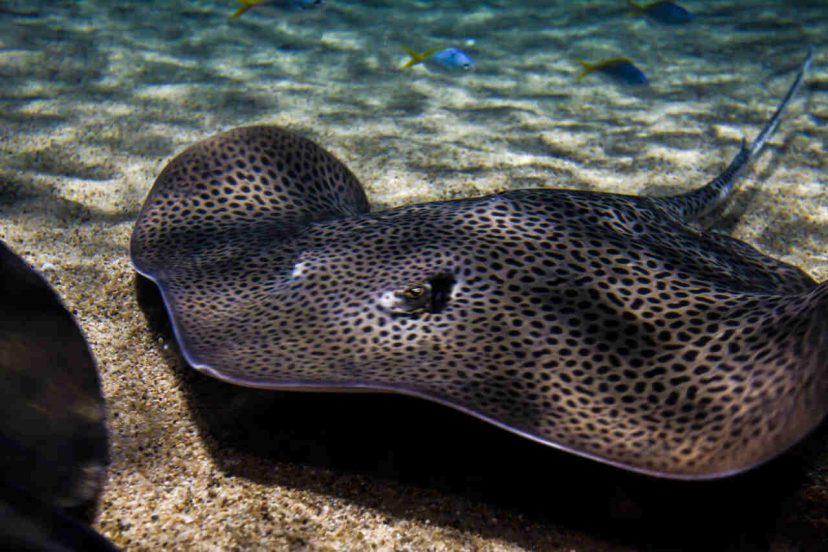Freshwater Stingray Aquarium – A Guide
Having a freshwater stingray aquarium can be an incredible spectacle and can significantly enhance the aesthetic appeal of your home or office. As a fishkeeping enthusiast and advisor, I am excited to share some helpful suggestions on setting up and maintaining your freshwater stingray aquarium. In this article, we will cover everything you need to know about keeping freshwater stingrays in an aquarium.
Introduction to Freshwater Stingray Aquarium
Freshwater stingrays are becoming increasingly popular among fishkeeping enthusiasts. These fascinating creatures are unique and graceful, making them a great addition to any aquarium. In addition to their extraordinary appearance, they are relatively easy to care for and bring a new level of excitement to any aquatic environment.
Choosing the Right Stingray for your Freshwater Aquarium
Before adding a stingray to your freshwater aquarium, it is essential to consider a few factors to ensure that you select the right stingray species.
Factors to Consider
- Tank Size
- Water Parameters of the Tank
- The Stingray’s Temperament
- Tank Mates Compatibility
Popular Types of Freshwater Stingray Aquarium
- Motoro Stingray
- Pearl Stingray
- Leopoldi Stingray
- Henlei Stingray
- Black Diamond Stingray
Setting up Your Freshwater Stingray Aquarium
The suitable environment is crucial for healthy and happy freshwater stingrays.
Tank Size
The tank size depends on the type of stingray species, and it ranges from a minimum of 125 gallons to more than 500 gallons.
Tank Decorations
Freshwater stingrays require hiding spots. So, provide plenty of hiding spots for the stingrays to rest during the day. But make sure to avoid sharp objects or decorations that can harm them.
Water Requirements
- Minimum Temperature – 24-28°C or 75-82°F.
- pH – 6.0-7.0.
- Hardness – 2-8 KH.
Feeding Freshwater Stingray Aquarium
Freshwater stingrays require a balanced and nutritious diet to thrive.
Frequency and Quantity of Feeding
Feed them once or twice a day and give them an amount of food that they can consume entirely in a few minutes. Overfeeding can lead to health problems for the stingrays.
Types of Food
You can provide your freshwater stingrays with different types of food:
- Live food
- Frozen food
- Fresh Fruits and Vegetables.
- Dry Food
Caring for Freshwater Stingray Aquarium
Maintaining the correct water quality is as important as providing suitable foods.
Water Quality
Maintain the aquarium filtration and regular water changes to maintain optimal water quality.
Tank Mates
If you intend to populate the aquarium with other fishes, please ensure to research and choose species that can cohabitate with freshwater stingrays.
Common Health Issues
Some of the common freshwater stingray health issues are skin diseases, bacterial infections, and parasites.
Conclusion
A freshwater stingray aquarium is a stunning addition to any home or office, and they are relatively easy to take care of. The correct environment and perfect diet are necessary for optimal health and happiness of freshwater stingrays.
FAQs
-
What is the minimum tank size required for freshwater stingrays?
A: The tank size depends on the type of stingray species, and it ranges from a minimum of 125 gallons to more than 500 gallons. -
What types of food can I feed freshwater stingrays?
A: Freshwater stingrays can eat Live food, Frozen food, Fresh Fruits and Vegetables, and Dry Food. -
How often should I feed my freshwater stingrays, and how much?
A: Feed them once or twice a day and give them an amount of food that they can consume entirely in a few minutes. -
What are some common health issues with freshwater stingrays?
A: Common health issues with freshwater stingrays are skin diseases, bacterial infections, and parasites. -
Can freshwater stingrays cohabitate with other fish species?
A: It is possible to cohabitate freshwater stingrays with other fish species, but ensure to research and choose species that can cohabitate with them.




